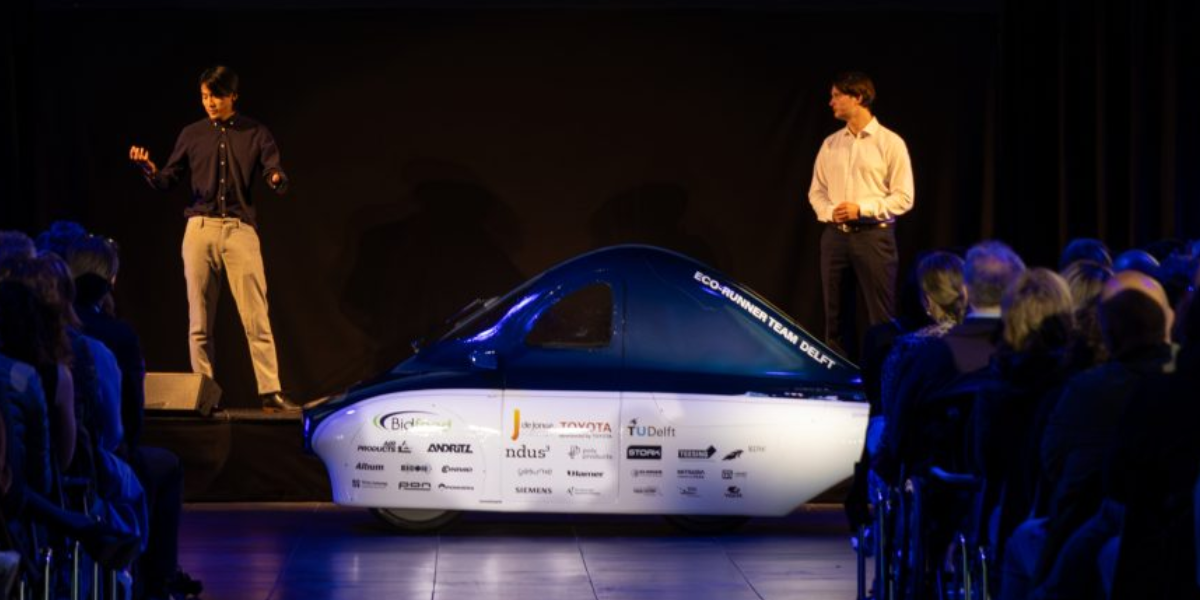
Joint letter to the President of the European Commission, Ursula von der Leyen, to stimulate the European automotive industry’s transformation and enhance competitiveness
ACEA, along with seven other signatories across the automotive value chain, including trade union and employer leaders, has issued an urgent plea to accelerate the transformation and competitiveness of the European car industry. In a letter to European Commission President Ursula von der Leyen, the signatories urged the European Commission to prioritize six essential initiatives before the present mandate expires in 2024:
- develop a robust industrial strategy;
- scale up a European zero-emission market and battery value chain;
- ensure a stable and coherent regulatory environment for the sector;
- enhance the skills agenda and Just Transition framework;
- improve transport affordability;
- ensure a global level playing field.
The signatories reaffirmed their commitment to decarbonizing transportation while emphasizing that inactivity by policymakers will jeopardize the transformation and competitiveness of the European automobile sector. It will also put at risk employment in a sector that employs over 13 million people in the EU. The EU needs a strong response to the Inflation Reduction Act (Ira) of the United States in order to stimulate investments in the European battery value chain and other crucial components to improve the environmental performance of vehicles. Europe should reduce its dependency on third countries for critical parts of the value chain. The regulatory framework for batteries, powertrains, recyclability, and circular economy must be clear, consistent, and encourage investments in Europe. Support for battery and kinematic value chain should be complemented by a robust strategy on hydrogen, both for industrial applications and mobility. At a legislative level, according to what the signatories of the appeal to the EU state, the current fragmentation of the European regulatory framework for the sector creates a context of uncertainty that undermines investments and weakens market demand. The EU should complete the single market (including charging and refuelling) and eliminate barriers to cross-border trade. The signatories are Sigrid de Vries, Director General of Acea, Antonio Perlot, Secretary General of Acem, Bernard Lycke, Director General of Cecra, Delphine Rudelli, Director General of Ceemet, Benjamin Krieger, Secretary General of Clepa, Adam McCarty, Secretary General of Etrma, Rene Schroeder, Executive Director of Eurobat, Judith Kirton-Darling and Isabelle Barthes, interim Secretaries General of IndustriALL Europe.
BMW, RENAULT, STELLANTIS: three different approaches to pursue this path
BMW
According to BMW, only internal combustion engines or hydrogen fuel cells allow Germany and Europe to create automobiles "almost self-sufficiently," whereas battery-powered vehicles are significantly reliant on international supply networks. In an interview with the business journal Handelsblatt, the company's CEO, Oliver Zipse, stated that by relying solely on electric transportation, Europe exposes itself to blackmail from resource suppliers. “That's why I believe a political decision to end combustion engines is reckless, an exit-decision without a simultaneous “entry-strategy" for alternative engines. Scaling up e-car production requires secure access to raw materials. And this is where Europe has a structural difficulty: region's poor adoption of new domestic mining ventures makes establishing a more autonomous economy even more difficult. Tighter CO2 emissions regulations for the fuel industry might make the vehicle sector more environmentally friendly using combustion engines. China's burgeoning e-car industry proved what an integrated government-backed strategy can accomplish to boost competitiveness. This was once a strength of Germany's; it's remarkable that Germany's involvement with the EU is increasingly taking a different approach. The production of combustion engines can be done largely with materials that are already widely available in Europe, but the fossil fuels required to power conventional combustion engines are overwhelmingly imported from suppliers outside the EU, including Russia, Saudi Arabia, and Nigeria.” According to the Federal Institute for Geosciences and Natural Resources (BGR), in 2021, around 98 percent of Germany's primary mineral oil usage will have to be imported. Both the EU and the German government have made initiatives to expand availability to raw materials needed for electric mobility, including agreements with new suppliers, possible state stockpiling, and greatly improved recycling methods to recover important materials used in industrial products.
RENAULT
Luca De Meo, CEO of Renault and President of the European Automobile Manufacturers' Association (Acea), strongly rejects Brussels’s imposition of an "all-electric" approach with a ban on internal combustion engines by 2035. De Meo specifically accuses the European Commission: "In Brussels, there is a group of electric extremists who either do not realize - or do not want to realize - how complex the future is", but also admits fault with Acea's actions, "it lacked courage in communicating alternatives to electric and explaining how e-fuels, for example, could be available immediately." "Because it controls rare earths, cobalt, and other elements essential for battery production, China plays a significant role in the global electric vehicle market," according to the statement. "Production costs for energy differ as well because in Europe, eco-friendly standards are required, whereas in China, coal is still used, there are no pollution limits, and labour costs are lower." The end results? In our setting, at least, "electric cars are a revolution for the wealthy."
As a result, De Meo is currently considering postponing the end of internal combustion engines from 2035 to 2040: "This," he emphasizes, "would allow the electric vehicle market to expand even more."
Even better if there is acceptance of technological neutrality." Manufacturers have put billions of dollars into electric vehicles in recent years, taking a passive approach. Meanwhile, politics has achieved permission for "CO2 neutral" classification for biofuels, thanks in part to Italian pressure. The European Parliament will be renewed in 2024, and the dynamics may be altered. As De Meo correctly points out, "the electric path is already set." However, given the uncertainty, having a larger "Plan B" would be prudent. After all, the market, with all of its complexities, always has the final say.
STELLANTIS
Tests by Stellantis show that 24 types of internal combustion engines in European vehicles produced by the group since 2014 can use advanced e-fuels without modification. The group formed through the 2021 merger of Fiat Chrysler and Peugeot maker PSA, said in April that it was testing 28 engine types on synthetic e-fuels made with renewable energy as part of efforts to decarbonise its European fleet. That was only weeks after the European Union opened a legal exemption for vehicles running on e-fuels to remain on sale beyond the 2035 deadline for the phasing out of carbon dioxide-emitting cars. A Stellantis spokesperson said that four of the 28 engine types tested are still awaiting validation. Stellantis, owner of brands including Fiat, Alfa Romeo, Citroen, Peugeot, Opel, Jeep and Maserati, said that the 24 engine types it identified as compatible with e-fuels represent about 28 million vehicles on the roads in Europe. The tests were conducted using surrogate e-fuels provided by Saudi oil giant Aramco. Advanced e-fuels can have a "massive and almost immediate impact on reducing the CO2 emissions" of the existing Stellantis vehicle fleet, said the company's engineering and technology chief, Ned Curic. The world's third-largest carmaker by sales said it estimated that the use of low-carbon e-fuels in as many as 28 million vehicles could reduce Europe's CO2 emissions by up to 400 million metric tons between 2025 and 2050. Low-carbon e-fuel has the potential to reduce CO2 emissions from existing internal combustion vehicles by at least 70% on a life cycle basis compared with conventional fuels, Stellantis said. The scenarios presented, however, are theoretical given that they rely on car owners opting to use e-fuels rather than conventional fuels. The group has targets to halve its carbon footprint from 2021 levels by 2030 and become carbon net zero by 2038.


